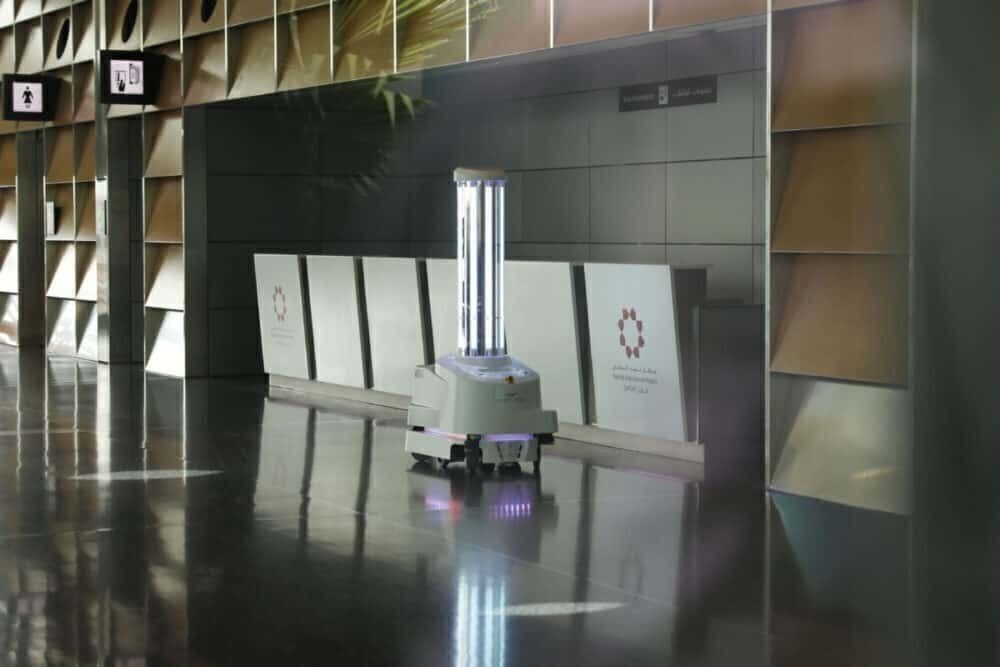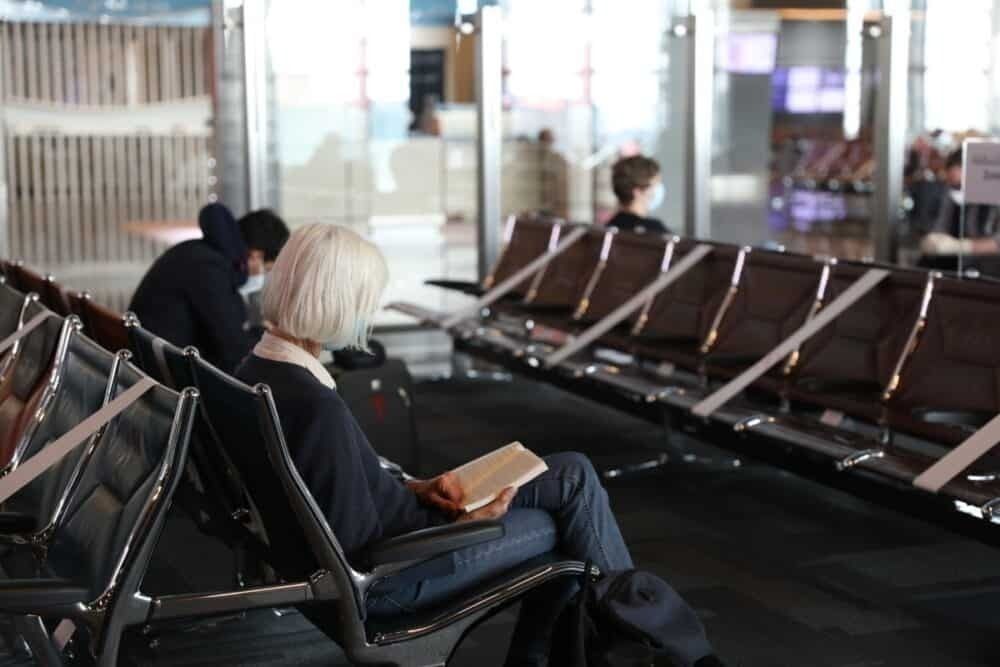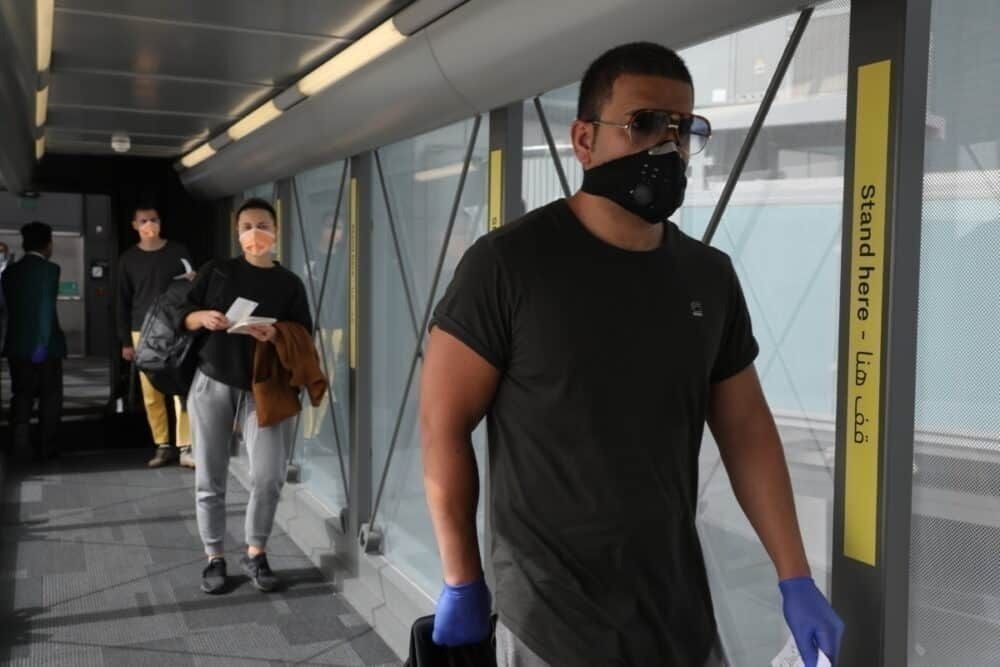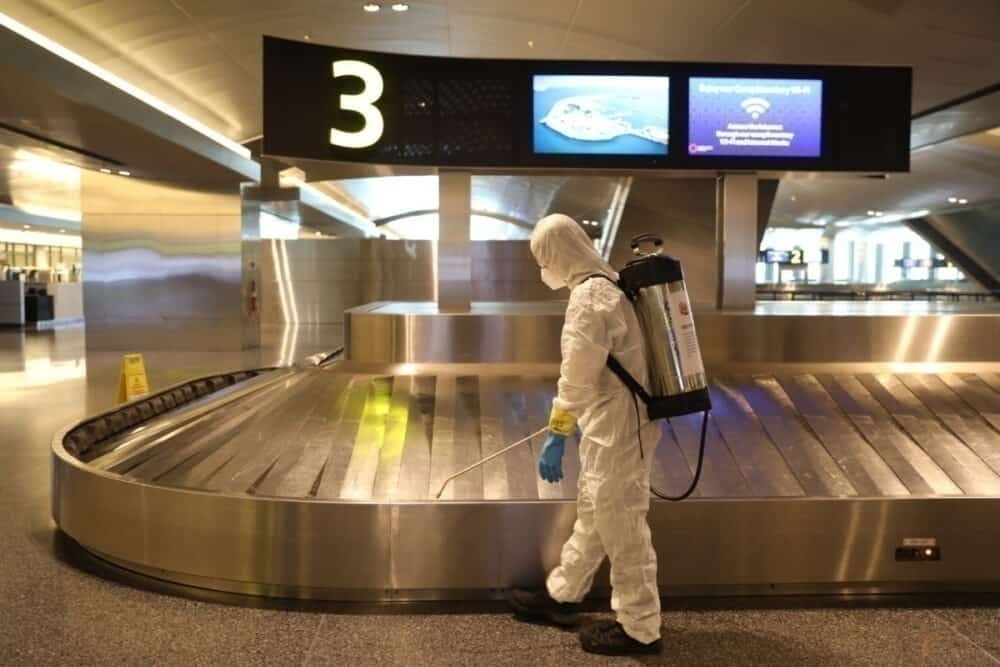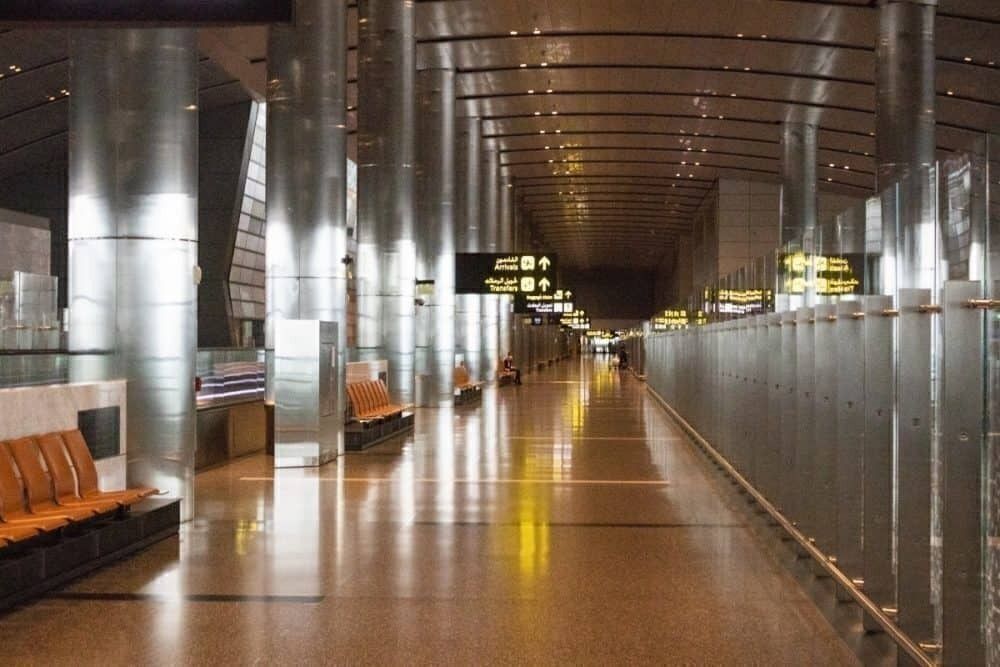Doha's Hamad International Airport (HIA) is using new technology to elevate passenger safety. As of March 19th, the airport is investing in robotics and special helmets to help keep passengers safe and prepare for a post-COVID era.
New thermal screening helmets
The new Smart Screening Helmets (shown above) allows staff wearing them to conduct contactless temperature measurement. Using advanced technologies like infrared thermal imaging, artificial intelligence, and augmented reality display, staff can check people's temperatures while maintaining distance and reducing the chances of viral transmission.
Disinfectant robots
HIA has also invested in fully autonomous mobile devices. Using concentrated UV-C light, the machines clean high-traffic flow areas. UV-C light is known to kill infectious microorganisms. Other airports, such as Hong Kong and Seattle's Paine Field, are also using UV technology to clean high-traffic areas.
Social distancing and reducing touchpoints
The airport has used floor markings, signage, and distance seating to encourage people to maintain 1.5 meters (~5 feet) of distance between them.
Passengers will also have access to hand sanitizer. This will be available at key locations around the airport. To further reduce contact, the airport is encouraging cashless transactions at retail and dining services. In addition, Hamad Airport is also looking at turning to online or in-app purchases in the future to reduce contact opportunities further.
Baggage disinfection
All checked-in baggage will also be disinfected through ultraviolet disinfection tunnels. This includes arriving, departing, and transit passengers. Also, the baggage belts are being sprayed with disinfectant.
Other measures
High-contact areas will continue to be disinfected every 10-15 minutes. Hand sanitizer will be restocked to ensure all passengers have access to it. And, the airport is also using artificial intelligence and computer vision technologies to detect if all people in the airport are wearing masks.
Is the future of travel?
It is too soon to know exactly what travel will look like in three or four years. However, airports and airlines are preparing for a health-focused travel experience. The iconic Hamad International Airport saw over 38 million passengers in 2019– a record-breaking number.
Through this crisis, Qatar Airways has continued to operate flights with plans to resume more flights in the coming months. Simple Flying's own Chris Loh flew Qatar Airways home on a repatriation flight. However, the airport has not had to deal with large numbers of passengers thus far.
The airport is instituting these measures as a way to prepare for a post-COVID world. COO of Hamad International Airport, Engr. Badr Mohammed Al Meer, had the following to say:
"HIA has adapted to the changes brought on by the spread of COVID-19 on the world, especially on the travel sector. Recovery plans have been put in place with priority given to the safety and comfort of travelers and employees. These plans include the use of the latest advanced technology to achieve the highest safety standards for the future travel experience"
Many of these measures will likely stick around for some time. The world is wary of a future spike that could threaten more lives and wreak further havoc on economies. A major transit hub, like Doha, will need to ensure that it can keep its employees and passengers safe. And, these measures will ensure that the airport can enforce its mask policy and limit transmission of viral illnesses.
While people may have concerns about personal privacy, public health takes precedence. While you may not be at risk, you may end up passing a virus to another passenger who may be at risk or who may come in contact with someone at risk– perhaps a family member.
Do you think Hamad International Airport is taking the right steps? Let us know in the comments!


